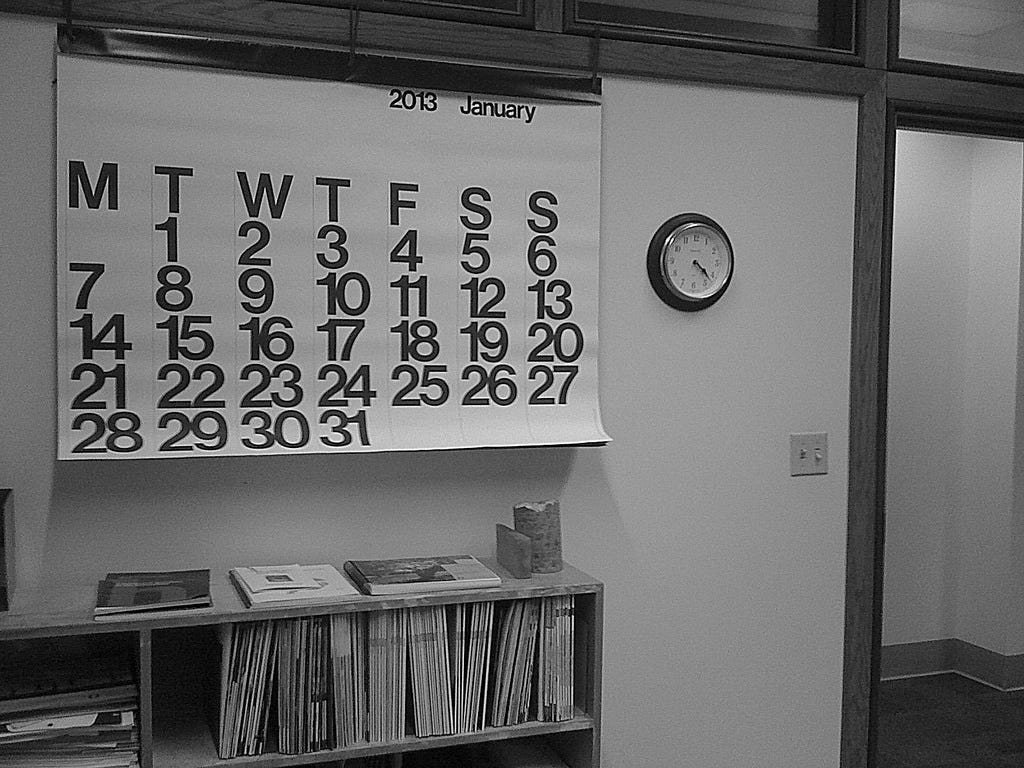Posting Every Day
Table of Contents:

Writing For the Challenge
One of my favorite — and most popular — vloggers is Casey Neistat. Not only are his videos entertaining and well-produced, but there’s also a new one put out every day.
There are quite a lot of people who are inspired by such a work ethic — but is it really something that one should aim for?
Writing and Posting
It would be a mistake to confuse ‘writing every day’ with ‘posting every day’. I think one of the most important things a writer can do for herself is write daily. But this is something entirely different, it’s public writing versus private writing.
When I write privately, I usually have a morning session and an evening session. At the start of the day, I write about what I want to accomplish that day, what I’m grateful for, and stream-of-conscious freewriting. At the end of it, I reflect on what happened and how I felt over the day. While it’s a helpful task for myself, I think it’s too personal and sentimental for strangers.
My public writing, on the other hand, is when I deliberately choose a topic and try my best to cohesively write about it. I try to instill something valuable in it, not only for others, but for myself. They say the best way to learn something is to teach it first.
Mediocrity
As David Kadavy pointed on in this post, pushing yourself to posting on a daily basis can lead to mediocrity. There are a number of reasons why this would make sense, logically. If a writer attempted this, they would be over-saturating their readers, and it would be doubtful that one could produce 365 novel ideas a year.
But I believe there are fallacies to this thinking, however. Starting with the article I wrote yesterday on blogging. It isn’t difficult to find new things to write about — both in fiction and nonfiction — if one is concerned more about the actual act of writing than with the result.
As a writer, you have to put yourself out there in order to gain readership. One can’t expect every post you write to go viral. Optimistically speaking, and handful will, and if the focus is on the metrics instead of improving writing and maintaining the work ethic, it will stay that way.
It’s more maths than anything else. If a writer decides to write thirty posts per month, there’s a far higher chance that he’ll write something he’s proud of as opposed to if he only posts four per month or weekly. There’s a higher chance that, in the act of writing, he will come across new ideas to expand upon and others that will comment on his work.
Schedule Commitment and Burnout
Of course, another problem is having the time, and not burning out. Most, if not all of us have jobs or schools that are higher on our list of priorities than the hobby of writing is. And personally, I have burned myself out from daily private writing, let alone public.
There’s only so much time in a day, and there’s only so much energy that one can muster. But the reality is that there are often large chunks of time that are wasted. Imagine if a writer instead spent every minute that’s consumed by Facebook in their word processor instead.
The act is always more important that the completion, or in other words, there’s no reason to stress about finishing — there’s no reason to worry about keeping up a streak. Try your best to publicly post every day, but do set a goal for a certain amount of time or word count that contributes to a post.
Reading
Every good writer knows how important reading is. There is no other method that’s better in finding ways to improve your craft, or locating inspiration. It was awhile ago, but I once read a quote that went something like this:
For every page you write, read a hundred more.
It’s a daunting thought, but should also serve as motivation. Reading should be a higher priority for a writer than the act of writing itself. When one takes time out of her day to write, she should also take more time out to read. Put your nose to the grindstone — to the nostalgic scent of paperback.
Paper Drafts
On a final and more personal note, I’d like to talk about this solo publication. An easy grammatical mistake to make is to confuse the term ‘every day’ (meaning daily) and ‘everyday’ (meaning mundane, average, etc.) and that the goal for this writing was simply to write about some thoughts I have.
I’ve written recently about slowing my pace, but now I think I’m reconsidering it, again. There’s no reason why I shouldn’t aim for publishing something each day — so long as I don’t stress about the fact I would obviously miss that mark often.
But more important than quantity is quality. And looking back at what I’ve written, again, I often have doubts about the topics I tend to sway towards. However, wandering aimlessly is a fear I know I should put aside. I’m just going to accept where my mind and writing leads. You can’t connect the dots until you’re looking backwards, after all.